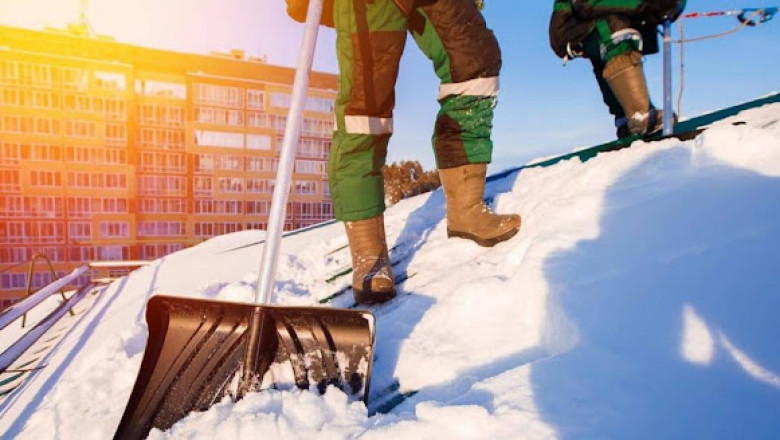views
Winter brings its own set of challenges for roofing contractors and homeowners alike. Snow, ice, and freezing temperatures can make roofing projects hazardous if proper precautions aren't taken. Whether you're a seasoned contractor or a homeowner planning a DIY repair, prioritizing safety is paramount. In this guide, we'll explore essential tips to ensure safety during winter roofing projects.
Schedule Weather-Appropriate Projects:
Before starting any roofing project in winter, it's crucial to check the weather forecast. Avoid working during extreme weather conditions such as heavy snowfall, freezing rain, or high winds. Plan your projects during milder weather windows to minimize risks.
Invest in Proper Safety Gear:
Both contractors and homeowners should invest in high-quality safety gear designed for winter conditions. This includes insulated gloves, non-slip boots, safety harnesses, and helmets. Proper attire can prevent slips, falls, and exposure to cold-related injuries.
Clear Snow and Ice:
Before beginning any work, ensure the roof surface is clear of snow and ice. Use a roof rake or shovel to remove accumulated snow, paying special attention to areas around vents, chimneys, and gutters. Clearing the roof not only reduces the risk of falls but also prevents structural damage from excessive weight.
Use Proper Ladder Safety Techniques:
Ladder accidents are a common cause of injuries in roofing projects. Ensure your ladder is in good condition and set it up on stable, level ground. Use ladder stabilizers or stand-offs to prevent slippage, and always maintain three points of contact when climbing.
Beware of Ice Dams:
Ice dams can form along the eaves of the roof, causing water backup and potential leaks. Contractors should inspect for existing ice dams and take preventive measures such as installing ice and water barriers. Homeowners should monitor their roofs for signs of ice dams and address them promptly to prevent damage.
Stay Hydrated and Take Breaks:
Working in cold weather can lead to dehydration and fatigue, increasing the risk of accidents. Both contractors and homeowners should stay hydrated by drinking plenty of fluids and take regular breaks to rest and warm up indoors.
Know When to Call in Professionals:
While DIY projects can be rewarding, some roofing tasks are best left to professionals, especially in winter conditions. If you're uncertain about safety or lack experience working on roofs, consider hiring a licensed roofing contractor for complex repairs or installations.
Conclusion:
Winter roofing projects present unique challenges, but with proper preparation and adherence to safety guidelines, contractors and homeowners can minimize risks and ensure successful outcomes. By scheduling weather-appropriate projects, investing in safety gear, and taking necessary precautions, you can protect yourself, your team, and your property during winter roof maintenance and repairs.














Comments
0 comment